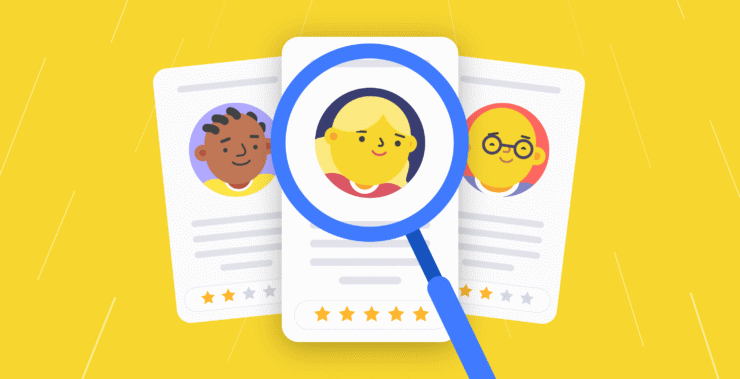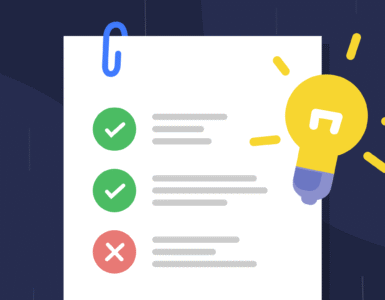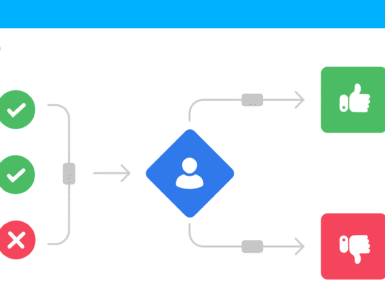Today’s hiring process it’s not a hire-or-develop on the spot. It’s more like a talent show where you can’t always spot the star at first glance. It’s rounds of evaluation to achieve full potential, compare strengths side by side, and identify the best fit for the team or company.
That’s why talent assessment tools become a necessity. They offer structure and insight, helping you understand not just what a person has done, but what they’re capable of doing. Whether you’re focusing on recruitment or development, they allow you to elevate your plan from gut to informed action.
The best assessment tools don’t merely scratch the surface. They measure how individuals think, communicate, solve problems, and adapt. That makes them extremely valuable collaborators not only during recruitment but in the evaluation of long-term talent development.
In this article, we will be reviewing the best talent assessment tools of 2025. Each one is designed to help you make better decisions and more effective teams.
But before we dive into the world of talent evaluation, let’s take a look at the best assessment tools worth considering:
- SHL – Best known for its science-backed approach to high-volume hiring and leadership potential evaluation, making it a top choice for enterprise-scale talent development assessments.
- HireVue – Stands out for its fast, AI-powered video assessments that streamline early-stage screening without compromising candidate quality.
- Criteria Corp – Offers affordable, easy-to-use talent assessment software with reliable cognitive and personality testing, perfect for small to mid-sized businesses.
- Pymetrics – Uses neuroscience-based, gamified talent assessment tests to promote unbiased hiring and uncover soft skills that traditional tools often miss.
- Mercer Mettl – Delivers highly customizable and secure talent assessment solutions, ideal for global hiring, proctored testing, and skills gap analysis.
- Talview – Integrates assessments, video interviews, and proctoring into one AI-driven platform, streamlining the entire recruitment and evaluation process.
- ThriveMap – Specializes in creating realistic job previews through custom simulations, helping companies improve culture fit and reduce early turnover.
What is talent assessment software and what to look for?
Before diving headfirst into the details, it’s helpful to first understand what talent assessment tools actually are, and what makes them stand out from other types of evaluations.
Talent assessment tools are platforms designed to evaluate candidates’ and employees’ strengths, potential, and fit for a role or career path. They are more than mere testing and ticking of technical skills. They provide a deeper analysis of how someone thinks, behaves, learns, and grows in a work environment.
This is what makes them different from traditional assessments. While many recruitment tools measure performance or knowledge in a fixed moment, talent assessment tools look at long-term potential. They help answer not just “Can this person do the job?” but also “Will they thrive here – and how can we support that growth?”
Whether you’re hiring or developing talent from within, these tools give structure to decision-making. They help remove bias, expose hidden strengths, and provide data you can actually act on.
In choosing the top talent assessment tools, here are a few key features to look for:
- A mix of evidence-based assessments like cognitive, personality, skills, and real-life simulations.
- Seamless integration with your existing HR tech stack, so nothing gets lost or duplicated
- Clean, readable analytics and benchmarks that help you compare candidates or track progress
- A seamless and inviting experience for candidates and HR teams alike – because nobody likes clunky software
- Native support for both recruitment and long-term talent development assessment
Whether you’re recruiting your next star performer or creating internal growth opportunities, the right talent assessment tool helps you do so with confidence and clarity.
Best talent assessment tools and platforms for 2025
| Platform | Best For | Assessment Types Included | Talent Development Support | Key Features |
| SHL | Enterprise hiring & leadership planning | Cognitive, personality, behavioral | Yes – leadership potential & benchmarking | AI-driven reports, global benchmarks, enterprise-grade solutions |
| HireVue | Fast video screening with AI | Video-based, structured interviews, soft skills | Limited – mainly hiring-focused | Predictive analytics, mobile-friendly, fast candidate filtering |
| Criteria Corp | Cognitive and personality testing for SMBs | Cognitive, emotional intelligence, personality | Yes – hiring + internal promotions | Scientifically validated tests, customizable, SMB-friendly |
| Pymetrics | Gamified, bias-free hiring | Neuroscience-based games (soft skills, EQ) | Yes – development & mobility | Gamification, DEI-focused algorithms, strong candidate experience |
| Mercer Mettl | Global hiring & skill gap analysis | Cognitive, technical, psychometric | Yes – upskilling & internal mapping | Remote proctoring, scalable, custom assessments |
| Talview | Full recruitment automation | Cognitive, behavioral, video interviews | Yes – tracking & analytics | All-in-one platform, AI insights, strong analytics dashboard |
| ThriveMap | Culture fit & realistic job simulations | Scenario-based job simulations | Yes – onboarding & expectation fit | Custom simulations, retention-focused, excellent for high-turnover roles |
1. SHL

SHL is a globally recognized talent assessment platform trusted by large enterprises for its depth, reliability, and science-backed approach. It offers a wide range of talent assessment tools, including cognitive ability tests, behavioral assessments, and personality evaluations.
SHL’s talent assessment software is particularly strong in supporting leadership pipeline planning. Organizations can use it to identify high-potential employees, assess leadership competencies, and plan future development tracks. With global benchmarking and AI-enhanced reporting, HR teams gain actionable insights that help with both immediate hiring needs and long-term talent development assessments.
- AI-driven reporting
- Global benchmarking
- Ideal for leadership pipeline planning
2. HireVue
HireVue redefines the hiring experience by integrating talent assessment tests into the video interview process. As a modern talent assessment tool, it leverages AI to analyze candidate responses, tone, and word choice, delivering predictive insights in a fraction of the time traditional methods require.
This talent assessment platform excels in screening high volumes of applicants quickly and fairly. It also supports structured interview frameworks that reduce bias. For companies looking to identify top candidates efficiently and with data-driven support, HireVue is a strong choice. It can also be used to assess internal mobility by evaluating soft skills and communication abilities.
- Fast-tracks top candidates
- Predictive analytics
- Mobile-friendly, candidate-centric
3. Criteria Corp
Criteria Corp is a flexible talent assessment software designed for small to mid-sized businesses. It offers a suite of scientifically validated talent assessment tests that measure cognitive ability, personality traits, emotional intelligence, and job fit.
With a user-friendly interface and customizable testing packages, Criteria makes it easy for growing companies to make informed hiring and promotion decisions. It also supports talent development assessments by helping organizations understand employee strengths and growth potential. The platform’s affordability and effectiveness make it an ideal talent assessment tool for companies with limited HR resources.
- Scientifically validated tests
- Customizable testing packages
- Supports both hiring and internal promotions
4. Pymetrics
Pymetrics takes a neuroscience-based, gamified approach to talent assessment tests, evaluating candidates’ soft skills through engaging games. These include measures of attention, risk tolerance, memory, and emotional intelligence—traits that are harder to capture in traditional assessments.
As a talent assessment platform, Pymetrics focuses heavily on reducing bias and increasing diversity by using DEI-focused algorithms. It also maps individual results to job profiles and company values, making it a great fit for talent development assessment and internal mobility strategies. Pymetrics helps organizations build fairer, more inclusive teams with data to support each decision.
- Engaging candidate experience
- DEI-focused algorithms
- Strong fit for development and mobility decisions
5. Mercer Mettl
Mercer Mettl is a robust talent assessment platform that offers an extensive library of assessments covering technical skills, aptitude, psychometrics, and domain-specific knowledge. What sets it apart is the ability to customize assessments and deploy them globally with secure, remote proctoring.
This talent assessment software is especially useful for organizations hiring across borders or managing hybrid and remote teams. It supports detailed talent development assessments through skill gap analysis, helping HR leaders design effective upskilling programs. It’s also ideal for technical hiring and large-scale evaluation processes.
- Secure and scalable
- Skill gap analysis
- Ideal for tech hiring and upskilling initiatives
6. Talview
Talview offers a comprehensive, AI-powered talent assessment software that automates every stage of the recruitment process – from screening to assessments to interviews and even onboarding. It integrates multiple talent assessment tools, including behavioral and cognitive tests, into a single platform.
By combining assessments with video interviews and remote proctoring, Talview ensures a seamless experience for both candidates and recruiters. It’s ideal for organizations that need speed without sacrificing rigor. The analytics dashboard supports not only hiring but also continuous talent development assessment, helping HR teams track growth over time.
- All-in-one solution
- AI-based insights
- Strong analytics dashboard
7. ThriveMap
ThriveMap focuses on job simulation-based assessments that reflect the actual day-to-day experiences of a role. As a talent assessment tool, it gives candidates a chance to “experience” the job before being hired, while employers gain insight into how someone might perform in that specific environment.
This talent assessment platform is especially useful for roles with high turnover, where culture fit and realistic expectations matter most. It supports onboarding success and long-term retention by aligning candidate expectations with real workplace scenarios. ThriveMap also helps with talent development assessments by pinpointing gaps between current performance and role requirements.
- Job-specific simulations
- Great for retention
- Enhances onboarding success
Use these tools for talent development, too
Talent assessment tools aren’t just for getting the right person in the door. They’re also useful for assisting employees in growing and succeeding over the long term. After an individual is on board, the same tools can help with ongoing talent development assessment.
Here’s how they work in practice.
- SHL and Mercer Mettl are ideal for leadership potential identification. They offer talent assessment tests that analyze decision-making, personality, and problem-solving. This enables you to pinpoint employees who are set to grow into leadership roles.
- Criteria Corp helps you understand how each of your team members learns and thinks. You can then design personalized development plans that actually work.
- Pymetrics provides another twist. With its games based on neuroscience, it illuminates soft skills and behavioral tendencies. That enables employees to be more readily matched with internal jobs or responsibilities where they can play to their strengths.
Ongoing use of talent assessment tools gives you a clear picture of how your people are progressing. It can enable you to track skill development, spot development needs earlier, and plan earlier for future roles.
How often do you do it? Best practice is to hold talent development discussions once or twice a year. You can also use them before a promotion cycle or in case of major change like team restructuring or new strategic goals.
Ongoing monitoring keeps you aligned with employee growth. It also keeps developmental initiatives on target and specific, as opposed to speculative. When people sense that their progress is tracked and cultivated, it creates engagement and increases retention.
These tools are not just valuable at the beginning. They continue to be useful throughout the employee lifecycle.
Conclusion
Good people choices are never the result of spontaneous, gut-driven actions. That’s where talent assessment tools fit in. From first hire through strategic planning, these websites offer you structure, transparency, and insights to lead each phase of the employee experience.
We’ve looked at some of the best talent assessment tools available today. Each brings something specific to the table – whether it’s cognitive testing, soft skills evaluation, job simulations, or leadership profiling. Some are better for high-volume hiring. Others are built for ongoing talent development assessment or spotting internal potential. Choosing the right one depends on your goals, your budget, and your company size.
What sets these tools apart from other test software is their clear focus on recruitment and staff development. Talent tests are not application filters – they’re valuable indicators of how people think, work, and evolve over time. Used consistently, they enable enhanced internal mobility, enhanced training, and more enlightened promotion paths.
These are not meant to replace human judgment but support it with facts. They can prevent bias, speed up decision-making, and offer a more standardized process to teams.
Whether you’re hiring for a critical role or mapping out succession plans, now is a good time to review your current approach. Pick a talent assessment platform that fits your needs and start building a workforce that’s not just skilled today – but ready for tomorrow.








